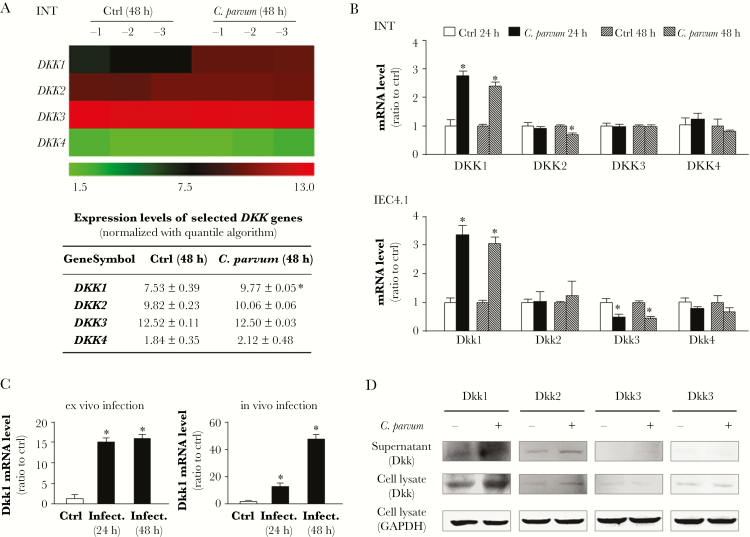Figure 2.
Cryptosporidium parvum infection induces expression and release of Dkk1 from infected intestinal epithelial cells. A, Alterations in DKK gene expression profile from genome-wide transcriptome analysis in INT cells following C. parvum infection from our previous study (the GEO database GSE87047) [10]. INT cells were exposed to C. parvum infection for 48 hours, followed by the microarray analysis; noninfected cells were used as the control (Ctrl). The mean value of the expression level for DKK genes is presented as a heatmap and listed in the table. B, Alterations in DKK gene expression in INT cells and IEC4.1 following C. parvum infection. INT and IEC4.1 cells were exposed to C. parvum infection for 24–48 hours, followed by real-time PCR analysis; noninfected cells were used as the control. C, Induction of Dkk1 gene in the enteroids following ex vivo C. parvum infection (Infect.) and in ileum tissues of neonates following in vivo C. parvum infection. Expression levels of Dkk1 gene in enteroids at 24 and 48 hours after ex vivo infection, as well as in the ileum epithelium at 24 and 48 hours after in vivo infection, were measured using real-time PCR. D, Upregulation of Dkk1 at the protein level, but not for Dkk2–4, in IEC4.1 cell cultures directly exposed to C. parvum or in supernatants from the cell cultures after exposure to C. parvum infection. The blotting gels were also stained for protein with silver staining as control. Data represent means ± SEs from 3 independent experiments. *P < .01 ANOVA versus non-infected control.

